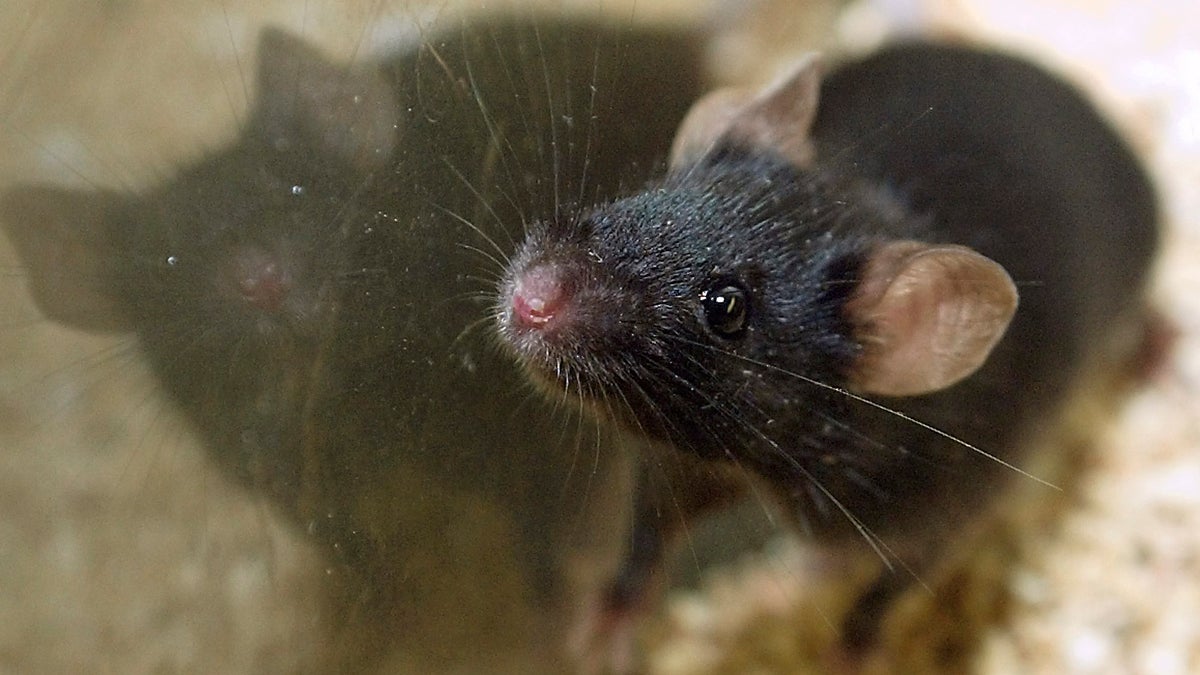During cancer research, Wistar scientists create healthier, leaner mice

(Tom Gannam/AP Photo)
A common problem for chemotherapy drugs is that they’re not specific enough — they successfully kill cancer cells, but healthy cells become collateral damage.
Researchers at the Wistar Institute have been tackling this problem by focusing on the energy sources of cells. But in the process, they’ve stumbled upon other potential benefits as well.
Cancer cells grow quickly, and for that to happen they need to have enough energy. That makes mitochondria — the powerhouses of any cell — an ideal place to look for cancer drug targets.
Sofia Lisanti, a postdoctoral fellow in Dario Altieri‘s lab, is part of a team investigating a drug called Gamitrinib that targets the mitochondrial protein TRAP-1 that’s more abundant in tumors.
“Because TRAP-1 helps in the assembly and folding of other proteins, this is a critical protein for mitochondria, in particular, and cellular function,” said Lisanti.
To better understand the role of the protein, Lisanti deleted the gene in mice.
“We have seen that deleting TRAP-1 changes completely the metabolism of the cells,” said Lisanti. “The cells produce more energy, and the mice consume more energy, and they uptake more glucose, for example, in the liver.”
Consistent with the work developing the chemotherapy, mice without the protein developed fewer tumors.
Publishing this week in the journal Cell Reports, the mice were also surprisingly youthful, even though an increased metabolism is typically thought to accelerate aging.
“The mice show less age-related effects, so for example, they are leaner, they have less inflammation in their tissues, and less degeneration,” said Lisanti.
It’s not yet clear if the knockout mice will actually live longer than their untreated counterparts, but Lisanti is continuing her experiments to find out.
The team is also planning to see whether mice lacking the protein are protected against diabetes or obesity, for example, by feeding them a high-fat diet. That would be an early indication their drug could also be useful in treating those conditions.
Disclosure: WHYY receives funding from Wistar.
WHYY is your source for fact-based, in-depth journalism and information. As a nonprofit organization, we rely on financial support from readers like you. Please give today.

